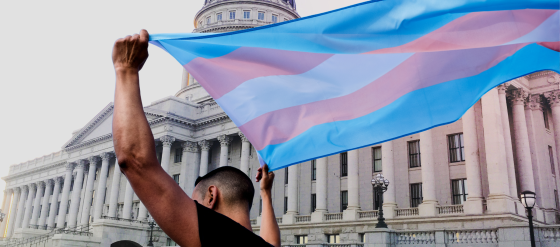Racial Justice and Police Practices - In May 1999, Mani Kang, a young man of Indian Sikh descent, was planning to drive through Southern Utah. Just coming from a visit with friends and relatives in California, Kang, like many other tourists, was interested in photographing some of Southern Utah’s natural sites before returning to his home in Arkansas. Shortly after entering Utah, however, Kang’s plans changed when he noticed a Utah Highway Patrol cruiser coming toward him. He was surprised when the trooper turned his car around and began following him, as he had not been speeding, had been observing all other traffic laws, and knew that his license plate and registration stickers were current. As the trooper continued to follow him, Kang became uneasy, and his discomfort was only exacerbated by the remote and isolated nature of the area.
He therefore stopped at a gas station just south of Blanding, and was again surprised when the trooper also stopped and waited while Kang refueled and entered the store to pay. When he noticed the trooper inspecting his car, the clerk warned him that the patrolman would “be waiting for you somewhere up the road. … Anyone that doesn’t seem from around here, he goes after … especially if they’re persons of color."
Kang resumed his journey, paying special attention to the speed limit and all traffic laws. Before long, however, he was pulled over by the same patrolman, Trooper James Curtis, who explained that he had pulled him over because he had been traveling in the left-hand passing lane. Trooper Curtis asked Kang many questions, including where he was going, his reasons for traveling in the area, and whether he owned the car he was driving. He then took Kang’s driver’s license and returned to his patrol car, where he was soon joined by a second trooper. The two discussed Trooper Curtis’s suspicions about Kang, and he resolved to conduct a search. Accordingly, he returned to Kang’s car, gave him his license back along with a warning ticket, quickly muttered that Kang was “free to go,” and then asked him whether he would mind if he searched his car. When Kang agreed, having nothing to hide, Trooper Curtis ordered him out of the car, asked whether he had any drugs or weapons, and conducted a pat-down search. He then proceeded to conduct a thorough search of Kang’s car. Finding nothing, Trooper Curtis finally sent him on his way.
On June 27, 2000, the ACLU of Utah and cooperating attorney Andrew McCullough filed a complaint on Kang’s behalf against the Utah State Department of Public Safety (DPS) and Trooper James Curtis. The complaint alleged that Kang’s stop, detention, seizure, and search were without reasonable suspicion or probable cause, and were therefore illegal and unconstitutional. The lawsuit further maintained that Kang was a victim of a larger DPS policy and practice of targeting certain individuals based principally on their perceived race or ethnicity, pulling them over for frivolous or non-existent moving or equipment violations, and then subjecting them to unlawful detentions and searches in an effort to find illegal drugs. In October 2000, the case was settled favorably out of court. While we are pleased that in this case, the Utah Highway Patrol agreed to have judgment entered against it, we continue to be concerned that DPS’s policy and practice remain the same and that motorists of color are unfairly targeted. We therefore intend to continue our efforts to require the fair and honest compilation and reporting of traffic stop data that bear upon the insidious practice of racial profiling. Happily, as a result of Kang’s courage in publicizing his experience, awareness of and opposition to such practices are building.
